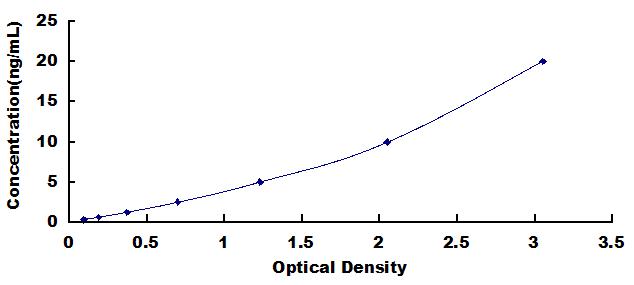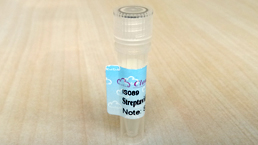Packages (Simulation)

Reagent Preparation

Image (I)
Image (II)
Certificate


- Featured-Product
ELISA Kit for Complement 1q (C1q)
C1-q; Autoantigen Clq
- Product No.SEA747Hu
- Organism SpeciesHomo sapiens (Human) Same name, Different species.
- Sample Typeserum, plasma, tissue homogenates, cell lysates, cell culture supernates and other biological fluids
- Test MethodDouble-antibody Sandwich
- Assay Length3h
- Detection Range0.312-20ng/mL
- SensitivityThe minimum detectable dose of this kit is typically less than 0.121ng/mL.
- DownloadInstruction Manual
- UOM 48T96T 96T*5 96T*10 96T*100
- FOB
US$ 280
US$ 400
US$ 1800
US$ 3400
US$ 28000
For more details, please contact local distributors!
Specificity
This assay has high sensitivity and excellent specificity for detection of Complement 1q (C1q).
No significant cross-reactivity or interference between Complement 1q (C1q) and analogues was observed.
Recovery
Matrices listed below were spiked with certain level of recombinant Complement 1q (C1q) and the recovery rates were calculated by comparing the measured value to the expected amount of Complement 1q (C1q) in samples.
| Matrix | Recovery range (%) | Average(%) |
| serum(n=5) | 99-105 | 102 |
| EDTA plasma(n=5) | 79-91 | 82 |
| heparin plasma(n=5) | 95-103 | 99 |
Precision
Intra-assay Precision (Precision within an assay): 3 samples with low, middle and high level Complement 1q (C1q) were tested 20 times on one plate, respectively.
Inter-assay Precision (Precision between assays): 3 samples with low, middle and high level Complement 1q (C1q) were tested on 3 different plates, 8 replicates in each plate.
CV(%) = SD/meanX100
Intra-Assay: CV<10%
Inter-Assay: CV<12%
Linearity
The linearity of the kit was assayed by testing samples spiked with appropriate concentration of Complement 1q (C1q) and their serial dilutions. The results were demonstrated by the percentage of calculated concentration to the expected.
| Sample | 1:2 | 1:4 | 1:8 | 1:16 |
| serum(n=5) | 86-101% | 88-96% | 89-99% | 80-102% |
| EDTA plasma(n=5) | 80-90% | 92-105% | 84-102% | 78-91% |
| heparin plasma(n=5) | 94-101% | 80-91% | 84-93% | 91-105% |
Stability
The stability of kit is determined by the loss rate of activity. The loss rate of this kit is less than 5% within the expiration date under appropriate storage condition.
To minimize extra influence on the performance, operation procedures and lab conditions, especially room temperature, air humidity, incubator temperature should be strictly controlled. It is also strongly suggested that the whole assay is performed by the same operator from the beginning to the end.
Reagents and materials provided
| Reagents | Quantity | Reagents | Quantity |
| Pre-coated, ready to use 96-well strip plate | 1 | Plate sealer for 96 wells | 4 |
| Standard | 2 | Standard Diluent | 1×20mL |
| Detection Reagent A | 1×120µL | Assay Diluent A | 1×12mL |
| Detection Reagent B | 1×120µL | Assay Diluent B | 1×12mL |
| TMB Substrate | 1×9mL | Stop Solution | 1×6mL |
| Wash Buffer (30 × concentrate) | 1×20mL | Instruction manual | 1 |
Assay procedure summary
1. Prepare all reagents, samples and standards;
2. Add 100µL standard or sample to each well. Incubate 1 hours at 37°C;
3. Aspirate and add 100µL prepared Detection Reagent A. Incubate 1 hour at 37°C;
4. Aspirate and wash 3 times;
5. Add 100µL prepared Detection Reagent B. Incubate 30 minutes at 37°C;
6. Aspirate and wash 5 times;
7. Add 90µL Substrate Solution. Incubate 10-20 minutes at 37°C;
8. Add 50µL Stop Solution. Read at 450nm immediately.
GIVEAWAYS
INCREMENT SERVICES
| Magazine | Citations |
| Journal of Clinical Immunology | Complement activation contributes to the injury and outcome of kidney in human anti-glomerular basement membrane disease. PubMed: 22941511 |
| Fish and Shellfish Immunology | Characterization of complement 1q binding protein of tiger shrimp, Penaeus monodon, and its C1q binding activity Pubmed: 23085472 |
| Journal of Neuroimmunology | Acute and prolonged complement activation in the central nervous system during herpes simplex encephalitis Pubmed:27235358 |
| Archives of Gynecology and Obstetrics | The role of complement components C1q, MBL and C1 inhibitor in pathogenesis of endometriosis Pubmed:29572748 |
| Journal of NeuroVirology | Intrathecal complement activation by the classical pathway in tick-borne encephalitis Pubmed: 30850976 |
| PLoS One | Complement activation profile of patients with primary focal segmental glomerulosclerosis Pubmed: 32569286 |
| CELL | Liver Immune Profiling Reveals Pathogenesis and Therapeutics for Biliary Atresia 33248023 |
| Chinese Journal of Nephrology, Dialysis & Transplantation | Plasma and urine complement activation products in light chain and heavy chain deposition disease |
| Journal of Chemical Neuroanatomy | Matrine treatment induced an A2 astrocyte phenotype and protected the blood-brain barrier in CNS autoimmunity 34280490 |
| Neuropsychiatr Dis Treat | Elevated Serum Complement C1q Levels After Traumatic Brain Injury and Its Association with Poor Prognosis Pubmed:35035218 |
| Catalog No. | Related products for research use of Homo sapiens (Human) Organism species | Applications (RESEARCH USE ONLY!) |
| PAA747Hu01 | Polyclonal Antibody to Complement 1q (C1q) | WB; IHC; ICC; IP. |
| LAA747Hu71 | Biotin-Linked Polyclonal Antibody to Complement 1q (C1q) | WB; IHC; ICC. |
| SEA747Hu | ELISA Kit for Complement 1q (C1q) | Enzyme-linked immunosorbent assay for Antigen Detection. |
| AEA747Hu | ELISA Kit for Anti-Complement 1q Antibody (Anti-C1q) | Enzyme-linked immunosorbent assay for Antibody Detection. |
| LMA747Hu | Multiplex Assay Kit for Complement 1q (C1q) ,etc. by FLIA (Flow Luminescence Immunoassay) | FLIA Kit for Antigen Detection. |
| KSA747Hu01 | ELISA Kit DIY Materials for Complement 1q (C1q) | Main materials for "Do It (ELISA Kit) Yourself". |













